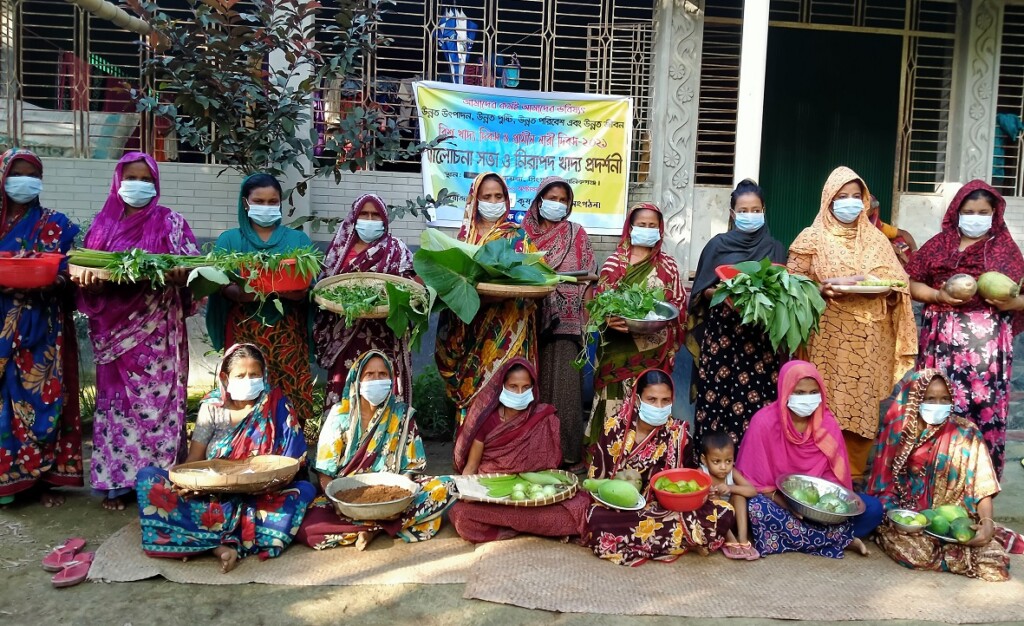Beauty Sarkar from Singair. Manikganj
BARCIK observed ‘World Food Day’ on 16th October in Manikgonj where members of Baira Ekta Krishak Sangathan (Farmers’ organization), farmers, women, students and other occupational groups participated. The theme of the celebration was ‘our work is our future’. On these very day BARCIK in collaboration with the local occupational organizations organized discussion, safe food exhibitions, women’s painting competitions, exchange of local seeds and distributed tree saplings among the participant.

During the discussion, Kohinur Hossain said, ‘Most farmers in this area farm vegetables without chemical fertilizer and pesticide. They use organic manure to ensure health of their lands and pesticides made from different herbs and plant to cure their crops and cast out pests.’ However, he appreciated BARCIKs role in promoting safe food and in facilitating as well as helping farmers to farm safe foods for all. In the meantime, woman farmer Rokeya Begum said, ‘Women do all the housework but they are not getting the dignity and rights. Their contribution in maintaining households, agriculture and other sorts of works are seldom recognized.
The participants in the discussion also shared about their initiative in producing safe crops for all. They farm vegetable in their homestead and make proper use every inch of their lands. Their produced yields do not only ensure nutrition of their family members but also earn them additional cash which they use to maintain their daily expenses.
Nonetheless, following the discussion, members of the farmers’ organizations particularly women displayed their produced safe food comprise of different vegetable, spinaches and herbs. These safe foods included vegetables grown in organic manure, fruits of local varieties, uncultivated plants and organic manure and organic pesticides. Famers and women also shared and exchanged local varieties of crop and vegetable seeds to each other to encourage others farming safe foods. They exchanged 10 types of local varieties of vegetable seeds among 10 farmers.
We know that Bangladesh is almost self-sufficient in food, it is not yet to ensure safe foods for all. Due to consuming adultery foods and foods produced using chemicals people are suffering from various diseases including kidney, cancer and other critical diseases. However, it is to mention that 63% of the people of Bangladesh live in villages and most of them are involved in food production in various ways.

